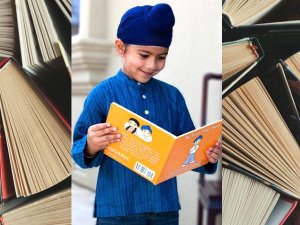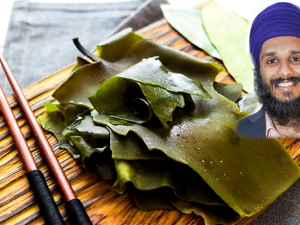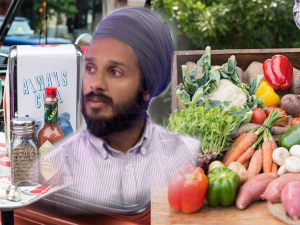1. “What, within myself, can I recognize as the things that I hate most about others?”
They say hate and anger are like poison that we have for others but invariably only poisons us; our mental health and wellbeing. Often when we have a strong dislike for a characteristic in someone, it is because we share that characteristic to some extent. It is easier to find flaws in someone else than to reflect on our own shortcomings.
Personally, I dislike people who talk negatively about other people but when I reflect on this, I cannot hand on my heart say that I never talk negatively about others myself.
2. “If I knew that my child would turn out exactly like me, would I be proud of them?”
As a parent, I feel we all want to raise “good children” and many of our daily interactions are grounded by this need for our children to be “good” and to listen to us. On reflection, I can identify many characteristics that I hope would not be passed on to my kids and so I think this question is helpful for me to reflect on and see areas for improvement.
For example, I reprimand my kids for having “too much” screen time when I am often on my mobile when I should be focusing on them. This question highlights the need to teach through actions as opposed to merely words.
3. “If I knew that my child would turn out exactly like my partner, would I be okay with that?”
Our partners may parent differently to us and have different strengths and weaknesses, the goal of this question for one, is to reflect on our partner's strengths and how blessed we are to have them in our lives.
4. “What is it that my biggest dreams are allowing me to escape from?”
Western culture is very much focused on outward success; more money, a bigger house, “financial freedom”, passive income, a nice car and the ability to travel. Western societies also have the highest levels of anxiety in the world.
According to a recent study, the United States has the highest number of stressed, anxious, and sad people in the world, with 33 percent (1 in 3) of its population reporting mental health issues.
The United Kingdom and Canada share the second-highest percentage, with 26 percent (1 in 4) of its people suffering from stress, anxiety and depression.
One hypothesis is that obsession with “success” is fueling greater and greater levels of anxiety.
In my experience, this is definitely true and when I have been my most ambitious, is when I was my most anxious. My ambition may have been an attempt to escape the monotony of adult life.
5. “Would I like me if I met me?”
I came across a quote recently by a scientist who said that after a lifetime of study his conclusions were that “people need to be kinder to one another”.
To be liked requires one to be present in the room, to take time out for people, and to be interested in others as opposed to self-obsessed. I feel I have much work to do in this area and can improve on all three of those aspects of being liked.
6. “When I imagine my future self, what do I see?”
In the book productively project, the author explains how humans are very poor at visualising their future selves and how this may be one factor in why we make decisions that are pleasurable in the short term but bad for us in the long term.
When I imagine my future self, it scares me a little as I can identify many habits which are not conducive to my long-term emotional, spiritual and physical wellbeing. On the other hand, I can envisage that the investment I make in my family will pay off with a close bond between us in the future.
7. “If I could tell the entire world just one thing, what would I say?”
Interesting question, as again, is focusing our attention away from ourselves and what we can get out of the world and more on others and what legacy we would like to leave behind.
Off the top of my head, I would tell everyone to “love more”. I feel love is powerful and can change lives, achieve great things and move mountains.
8. “What is worth suffering for?”
Family, faith, and freedom (of speech, expression, self-discovery)
The answers to the last 8 questions are very personal and my answers may not resonate with you. I haven’t added context to these questions as I feel they are self-explanatory.
9. “What is worth waiting for?”
My goals are worth waiting for “anything can be achieved with the wedge of time”.
10. “What don’t I want to regret on my deathbed?”
I don’t want to regret my bad habits; I want to change whilst I have time.
11. “Is there an unconscious fear controlling my actions?”
Perhaps the fear of not being loved.
12. “What am I afraid to admit I want?”
Intimacy and affection are important to me.
13. “When was the last time I showed true kindness?”
Weekly - Helping a disabled neighbour take his rubbish out.
14. “When was the last time I was irrationally mean?”
I am often mean to the family, mainly when I am sleep-deprived or haven’t been doing simran. I always regret it.
15. “What do I not want anybody else to know about me?”
I present myself as very sensible, motivated, and disciplined but internally I often feel apathetic, lost, and unfocused.
16. "Am I a nice person to be around?"
I would say I am not (outside of a close circle of people, I am introverted and very quiet). This question along with question 5 have helped me identify what areas I would like to improve on, in my relationships.
Here’s a challenge, copy and paste the questions below and write out your answers. Let’s reflect on these again at the end 2022 and see if we have grown. DM me on Instagram @askharbir and let’s check in with each other at the end of the year.
“If you’re not growing, you’re dying” - Tony Robbins
*These questions are adapted from the book 101 essays that will change your life by Brianna Wiest






